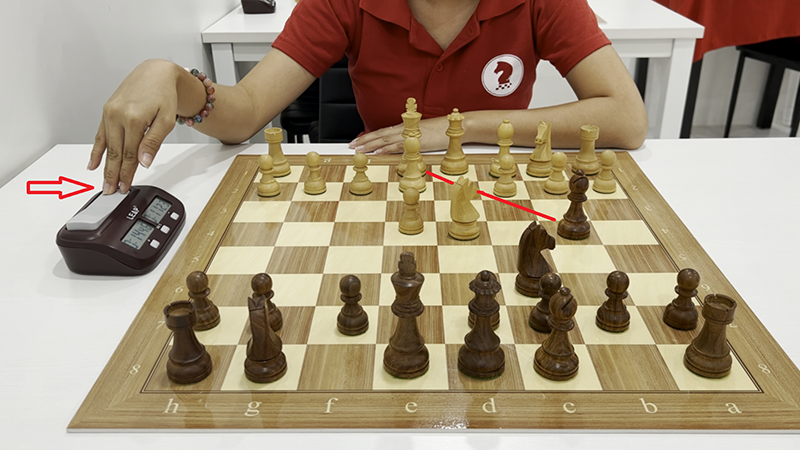- Red Knight Chess-
- April 12,2022
When one of the players plays a move that violates the rules of chess, followed by pressing the clock and starting his opponent’s time, he has committed an illegal move. Novice players should learn how to avoid making illegal moves, and how to react when their opponent makes an illegal move.
Usually, by making three illegal moves, the player will lose the game. At least in school competitions, this is the case. The organizers may want to enforce more strict or more relaxed rules. For example, in FIDE rated competitions, the second illegal moves will be the one that ends the game. This is understandable because FIDE rated competitions are intended for more experienced and knowledgeable players.
Here are some examples of illegal moves:
– Moving the King on a square that is attacked by opponent’s pieces.
– Not protecting the King that was attacked by opponent’s piece. For example, leaving the King in check.
– Moving a piece in a way that the piece is not allowed to move. For example, moving a Bishop in a L-shape like a Knight.

On the photo above, the black Bishop on b4 is attacking the white King on e1. The player with the white pieces should have defended the King. Instead, she made a move that left black’s King “in a check” (under attack) and thus she made an “Illegal move”.
How to claim that the opponent has played an illegal move?
You can claim by stopping the clock (by pressing the pause button) and raising your hand. Then you wait until one of the arbiters comes to your table. Tell the arbiter which was the last move that your opponent did, and why do you think that the move is illegal. If your claim is correct, then the arbiter will note that your opponent made an illegal move. The move will be taken back and your opponent will make a new move.
You can make your claim only after your opponent has pressed the clock. The move is not completed if the clock is not pressed. (See the photo above)
Also, you should not touch or move any pieces when that happens. You will lose the right to claim illegal move if you make a touch-move or if you make a move.
Can I just count the moves myself, and call the arbiter when my opponent plays the third illegal move?
No, you cannot. The arbiter is the only person in charge of counting the illegal moves. You must call the arbiter every time your opponent plays an illegal move.
My opponent left the King in a check, so I captured it and won the game! Checkmate!
No, you did not win the game. You did an illegal move, because capturing the King is against the rules of chess. Instead, you should have raised your hand and claim that your opponent did an illegal move when he left his King in a check. Capturing the King is not the same as checkmating the King.
Here are some videos for beginners about checkmating the King:
– The Bicycle Checkmate
– The Knight Shadow Checkmate
– The Box Checkmate
I hope this was helpful.
